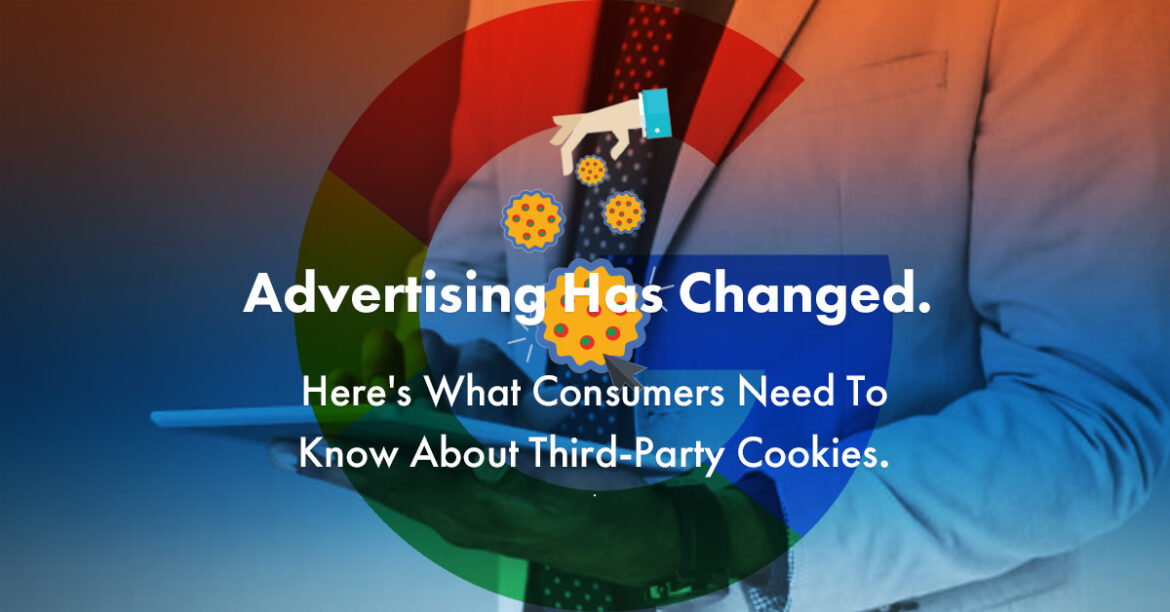The third-party cookies that have tracked internet users for years are going away. Is that a good thing? The internet of things (IOT) has changed remarkably in this new privacy-first era. As a result, you may be subject to less invasive and interrupting online tracking. Web browsers have long allowed third-party cookies, which enable advertisers to follow you around in order to target messaging.
What is a cookie?
In the most basic sense, a cookie is a tiny text file when you visit a website. The website designers may have a script on the site to produce this text file and add it to your mobile device or computer browser that assigns you a unique user ID.
Why does it matter anyway?
Cookies are also helpful for website owners to understand their site traffic and how many individuals visit their website by tagging browsers with a unique cookie. First-party cookies can increase user experience (UX) by allowing sites to remember who you are without requiring a log-in every time. Creating a personalized web experience with the site product and brand.
What’s the difference between a first party and a third party cookie?
The difference between first and third party cookies is how they’re saved and who can see them. When a website saves a cookie, it’s given a domain. If the domain on the cookie matches the domain of the website setting it, it’s a first party cookie. If the domain is different, it’s a third party cookie. First-party cookies can only be seen when on the website that set it, where third party cookies are visible from any website. Yet many ad agencies use advertising technology to place third-party cookies on your device, making it possible to monitor and track what we do on the internet across sites to see what sites and content we’re interacting with. As a result, your data is gathered related to their interests, geography, and other demographic information that can be used to tailor target ad messages that inescapably follow you around after you look up something. In almost a quarter of a century third-party cookies and other programmatic advertising tracking technology have increased rapidly since 1994, and most web browsers like Chrome Firefox and Safari browser have allowed them by default. Users could play around with numerous settings to try to block ads, but many people don’t bother.
Example of first-party cookie:
Let’s say you’re phone shopping for a birthday present on an eCommerce website, You put items in your shopping cart. A cookie was set by the domain you’re on. When you return, the site recognizes your device and keeps your same items in the shopping cart. Bing bong, a first-party cookie doing what it does. (UX) User experience.
Example of third-party cookie:
On the other hand, let’s say you’re on a.com, and the page you’re on contains an iframe from a different website (b.com). Cookies set by b.com accessed from an a.com page are third-party cookies. Accessing them from a.com is a cross-site request. The iframe might show you an ad via Doubleclick — they track you across multiple websites, and serve you ads wherever you go online. That’s the type of thing Google’s cracking down on.
What Has Changed?
The use of third-party cookies has come under fire, as some companies used this technology without transparency or even a user’s consent. As frustrations grew around the use of third-party cookies, governments began passing laws such as CCPA, ePR and GDPR aiming to protect users’ privacy rights online. With the passing of these laws, the stakes rose, and now all major browser developers, including Apple, Firefox, and Google, are ending the support of third-party cookies.
Popular browsers are now saying, “no more.”
Apple started requiring user permission before allowing third-party cookies in its Firefox and Safari browser to automatically block third-party cookie tracking. Google announced it would follow Apple’s lead by 2023. Legislation such as European Union rules that require them to get consent before using all but “strictly necessary” cookies (such as when you put items into a website shopping cart). Then the California Consumer Privacy Act gives Californians certain data protections.
Why does Aiden Marketing and their clients use cookies?
Cookies for digital marketing agencies like Aiden marketing are beneficial for what we want to do online. Example, if you’re online shopping on one of our clients eCommerce sites, a cookie keeps a record of your shopping cart items while you browse between pages. Cookie tracking offers them and us context for their site traffic and how many people visit their web pages viewed by tagging browsers with a unique cookie. We do not tie any personal Information to the cookies that we set on their website for anonymous, first-time visitors. These cookies do not enable third parties to access any of your personally identifiable information. If a visitor is interested in their content and chooses to complete an online form or enable a live chat. Then a record is added in their CRM database. The recent history associated with their cookie will be connected to the record.
Reducing the number of cookies safeguards individuals’ privacy. Apple and Google are updating their software to make that easier. These updates will no doubt make it more difficult for marketing, sales, and service teams. But what’s more important is your customer’s experience.



